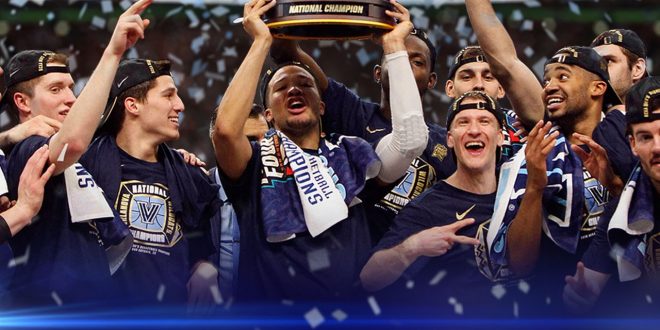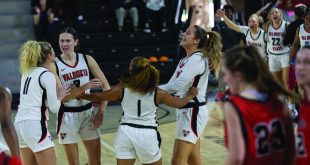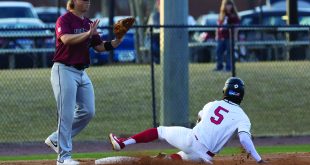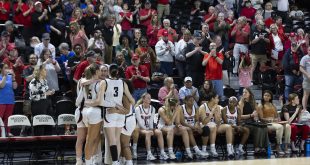Villanova won it all, top-seeded Virginia got clobbered by a 16 seed team and a small school from Chicago gave sports fans something to cheer about.
For college basketball fans, the headlines were obvious, but the event of March Madness gives us more than a champion.
Whether it’s the teams we root for or the characters we identify as heroes (or not), in many respects, the tournament reveals to us who we are.
Here are the lessons we learned about ourselves this time around:
We turn a blind eye to the evils of sports
Prior to the tournament, word spread that the payment of prospective athletes had become widespread, if not, a cultural norm in college basketball.
The story of the FBI probe may have shocked you or may have come with no surprise, but, regardless, the event revealed one thing in particular: we are aware of the evils that take place in sports, yet we still continue to watch.
When the Carnegie Report of 1929 revealed the common existence of corruption when it came to recruiting and subsidies, college football fans weren’t concerned nor did it affect their fervor. About 50 years later, the “Pony Express” scandal at Southern Methodist University did not harm the following of the sport, either.
Pertaining to the sport at hand, Louisville recruited players by hiring prostitutes. Still, we kept watching.
In general, college fans aren’t oblivious to the malpractices that exist, but rather we view these events like car crashes. They are awful, but instead of deciding not to drive, we continue to operate our vehicles.
In the case of college basketball, we continue to fill out our brackets and watch the games.
We like to see teams fight until the end
Although the game appeared to be over, we learned from the Florida State-Michigan contest that it never should be assumed to be a done deal.
Down by four with 11 seconds left, the Seminoles did not foul an opposing player, allowing for the clock to run out. A foul, while certainly not guaranteeing a win, at least would have given the team from Tallahassee a fighting chance.
Whether you thought the blame should have been placed on Florida State Coach Leonard Hamilton or the players on the floor, Hamilton’s quote that “The game was over” did not go over well and left the impression that they had quit whether the belief is fair or unfair.
The only thing that may have looked worse than that final sequence was Hamilton’s postgame interview with Dana Jacobson.
We love the Cinderellas even though they hardly pull through in the end
Every year upsets occur, but in the tournament’s history, very few have gone on to win it all. We still root for them anyway.
For the first time ever, a 16 seed, the University of Maryland, Baltimore County, knocked off a No. 1 seed, a two loss-Virginia team that had dominated the nation’s best conference, the Atlantic Coast Conference. Thirteen seed, Buffalo, defeated Arizona, and another 13 seed, Marshall, beat Wichita State. Eleven seed, Loyola-Chicago, became the darling of the tournament when it pulled off dramatic wins over Miami, Tennessee and Nevada before beating Kansas State on its road to the Final Four.
Like teams of the past such as George Mason University, Virginia Common Wealth and Butler, Loyola-Chicago gave us a Cinderella to get excited about.
They didn’t win it all, but that doesn’t matter.
When March rolls around in 2019, we’ll be rooting for the next one.
We’d all like to have a Sister Jean
In a tournament that puts players and coaches on a pedestal, it was a team’s chaplain who stole the show this time around.
Sister Jean Dolores Schmidt, a Catholic nun that has served as the Loyola-Chicago basketball team’s chaplain since 1994, is known for her prayers before games and for her scouting reports. Beyond basketball, she is a beloved celebrity on campus.
The story of Sister Jean reminded me of my days at Ave Maria University. The intimate relationships are more common at smaller schools than the large universities that commonly represent Division I basketball.
For those who can’t relate, it’s a story of a woman who has an open door for everyone, supports you through the good times and the bad and is there until the end.
It was the story of Sister Jean that signified the ideal college basketball fan. In a sense, given her role, she is one of us. From another angle, she is more impactful to her school community than any of us could imagine.
The 2018 NCAA Tournament taught us many lessons, but none were more powerful than the one about a nun who displays a beauty of college basketball and college life that hadn’t been exposed to us in years past.
Written by Bryant Roche, Contributor. Photo courtesy of MGN Online.
For more sports click here.
 The Spectator The independent student newspaper of Valdosta State University
The Spectator The independent student newspaper of Valdosta State University







